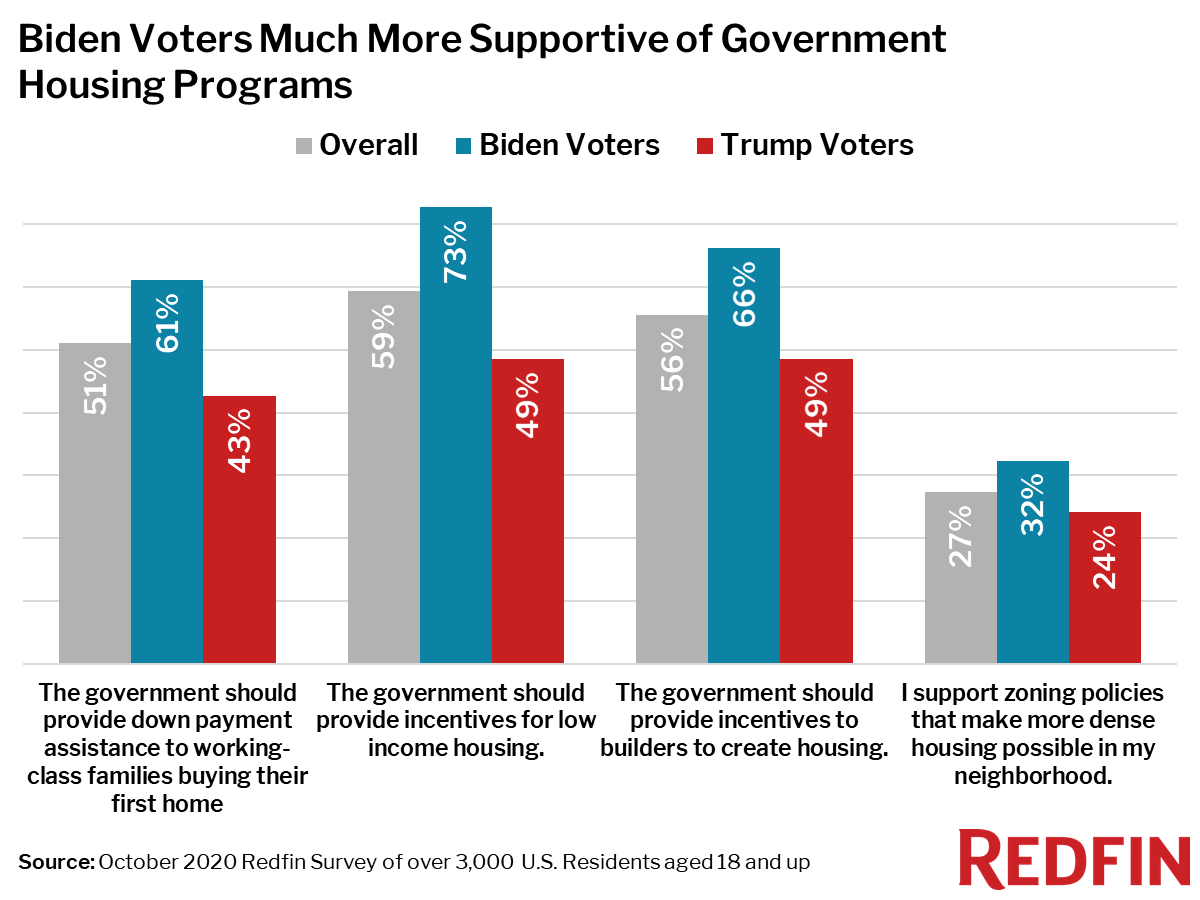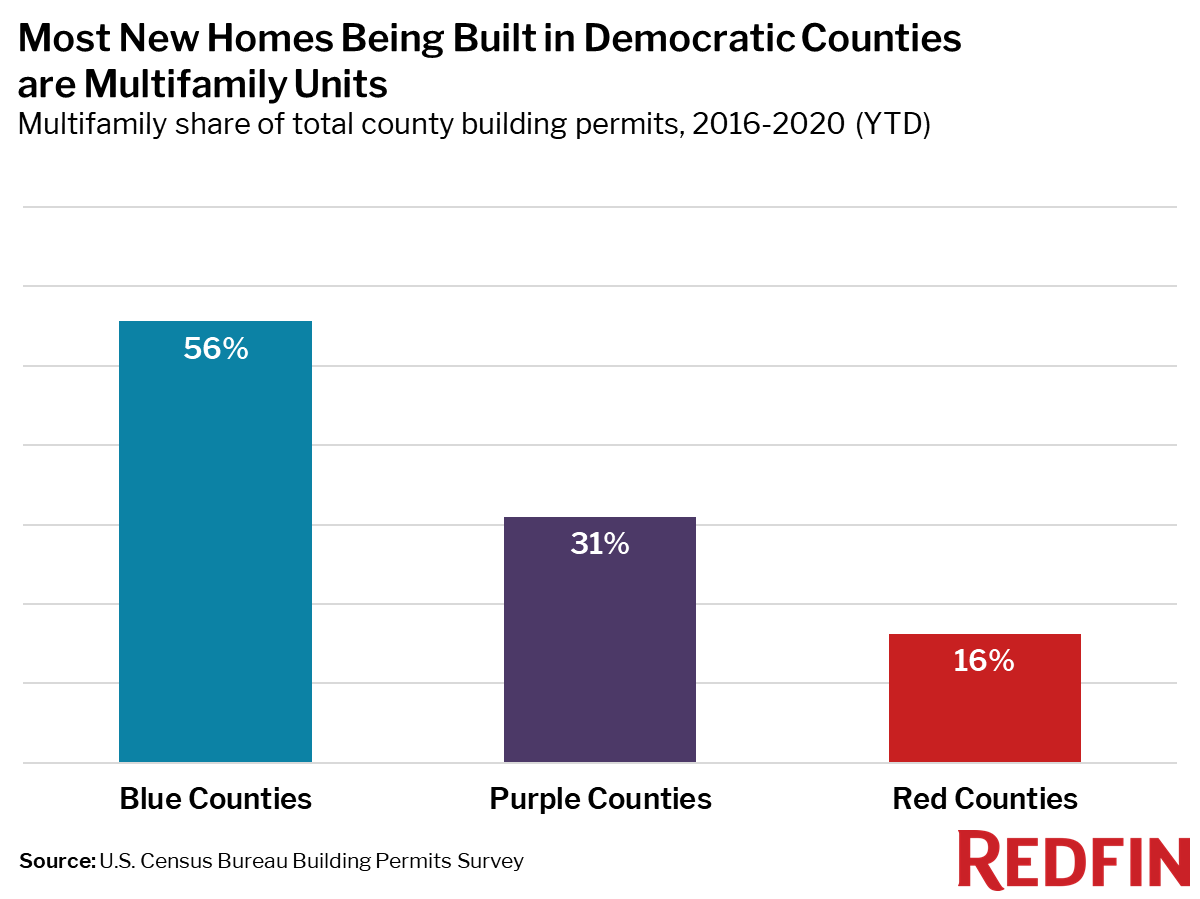Over half of U.S. residents (56%) think the government should provide incentives for builders to build more housing, but less than half as many (27%) support zoning policies that would allow more dense housing in their own neighborhood. This is according to an early October Redfin survey of over 3,000 U.S. adults.
People who are voting for Joe Biden were more likely to support government programs for housing, with 61% supporting down payment assistance, 73% supporting incentives for low income housing, and 66% supporting incentives for creating any type of housing. However, when it comes to zoning for density in their own neighborhood, just 32% of Biden voters said that they support such policies.
Trump voters were less likely to support any of the three pro-housing policies we asked about, with just 43% in favor of down-payment assistance and 49% supporting incentives for low-income housing or any kind of housing. Only 24% of Trump voters support policies that make more dense housing possible in their neighborhood.
“Housing is one of the few types of policies that does not fall neatly into liberal or conservative camps,” said Redfin chief economist Daryl Fairweather. “While many Americans across both major parties can agree that there’s a need for more housing–particularly affordable housing–both Democrats and Republicans are reluctant to see their own neighborhoods become more dense. This will be a challenge for those elected into local, state and federal offices next week, but hopefully politicians will work together to create bipartisan housing reforms like down payment assistance or incentives to build more affordable homes.”

Construction of multi-family housing in the U.S. is more lop-sided. According to U.S. Census building permit data, 56% of the building permits granted to builders in Democratic-leaning “blue” counties over the last four years were for multifamily housing projects, compared with 31% in swing “purple” counties and 16% in Republican-leaning “red” counties.

Support for down-payment assistance was predictably high among renters, with 62% in support compared to just 48% among homeowners. However, renters were not much more likely than homeowners to support government incentives for low-income or other types of housing, with support from both groups ranging between 55% and 61%. Renters were also mostly opposed to density in their own neighborhood, with just 31% supporting the idea, compared to 26% of homeowners.



